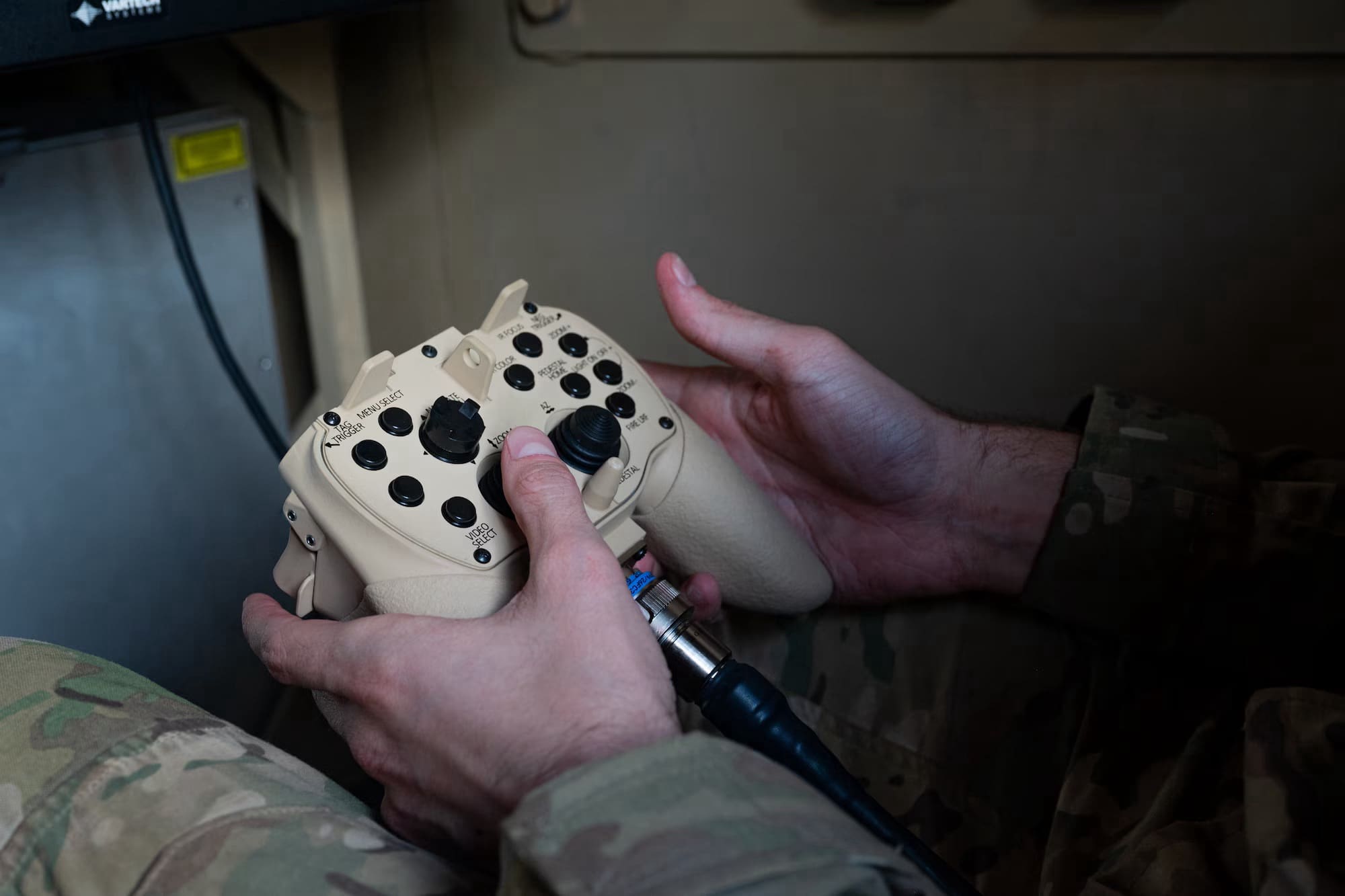
WRIGHT-PATTERSON AIR FORCE BASE, Ohio – The Recovery of Airbase Denied by Ordnance (RADBO), a variant of the Mine-Resistant Ambush Protected (MRAP) family, was utilized operationally for the first-time during Exercise Cope North 24 at Andersen Air Force Base, Guam, in late January.
Cope North 24 is a multinational, U.S. Pacific Air Forces-sponsored, field training exercise focused on airborne integration for large-force employment and agile combat employment.
“Exercise Cope North is an annual exercise where EOD Technicians from across the Air Force, as well as the joint service, practice the EOD portion of the Rapid Airfield Damage Recovery mission,” said John Stewart, Air Force Civil Engineer Center EOD Modernization Program analyst and RADBO User Representative. “As a premier RADR exercise, fielding RADBO to the Andersen’s Red Horse Training Squadron provided exposure to the larger Air Force EOD enterprise who will start seeing RADBOs delivered to air bases and training locations globally.”
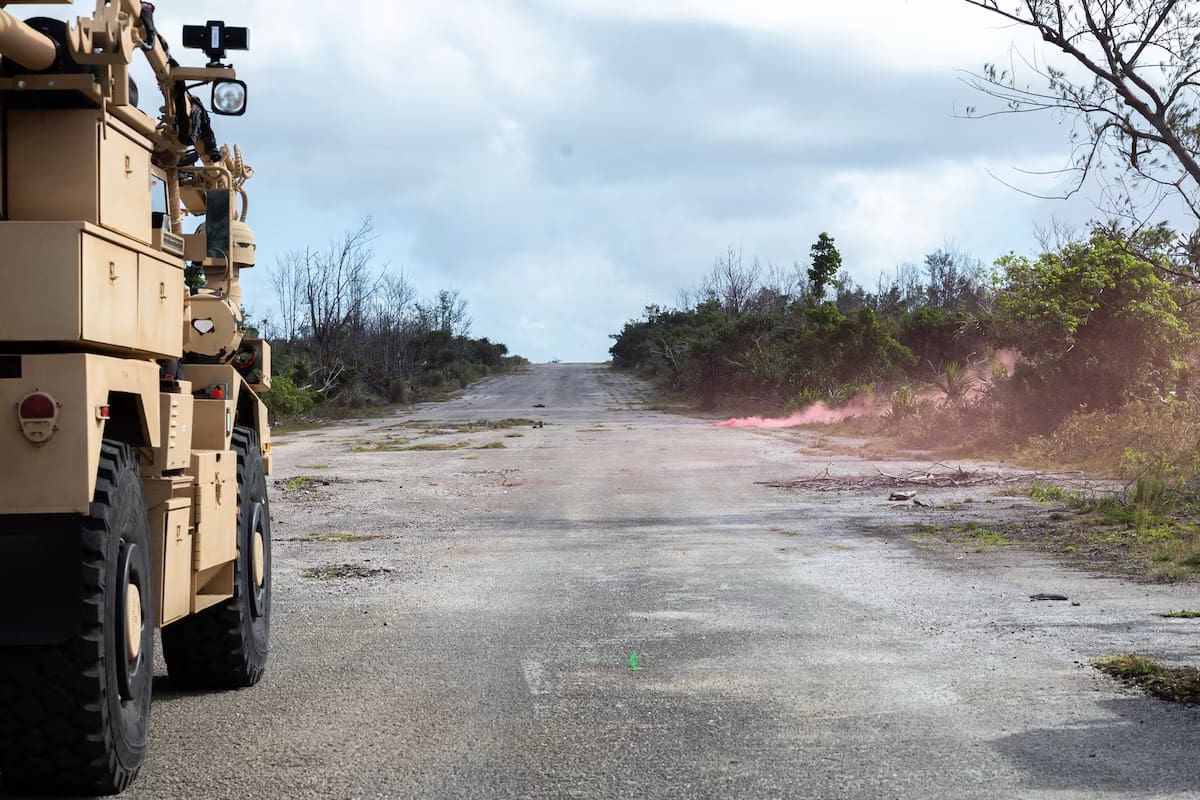
The intent of the vehicle is to utilize directed energy, or lasers, to safely neutralize and clear unexploded ordnance – such as bombs, grenades, improvised munitions, or other explosive devices – on airfields in deployed or austere locations.
“From a program office point of view, the performance was excellent,” said Tony Miranda, RADBO program manager with the Agile Combat Support Directorate’s Support Equipment and Vehicles Division. “There was a learning curve due to the atmospheric interference not encountered before, but the field service reps from the original equipment manufacturer made adjustments and resolved the focus issue.”
Miranda highlighted that the Explosive Ordnance Disposal teams were excited to have the RADBO asset in hand and praised the vehicle’s performance. RADBO is a crucial part of the Air Force Civil Engineering Center’s Rapid Explosive Hazard Mitigation and Rapid Airfield Damage Recovery concept.
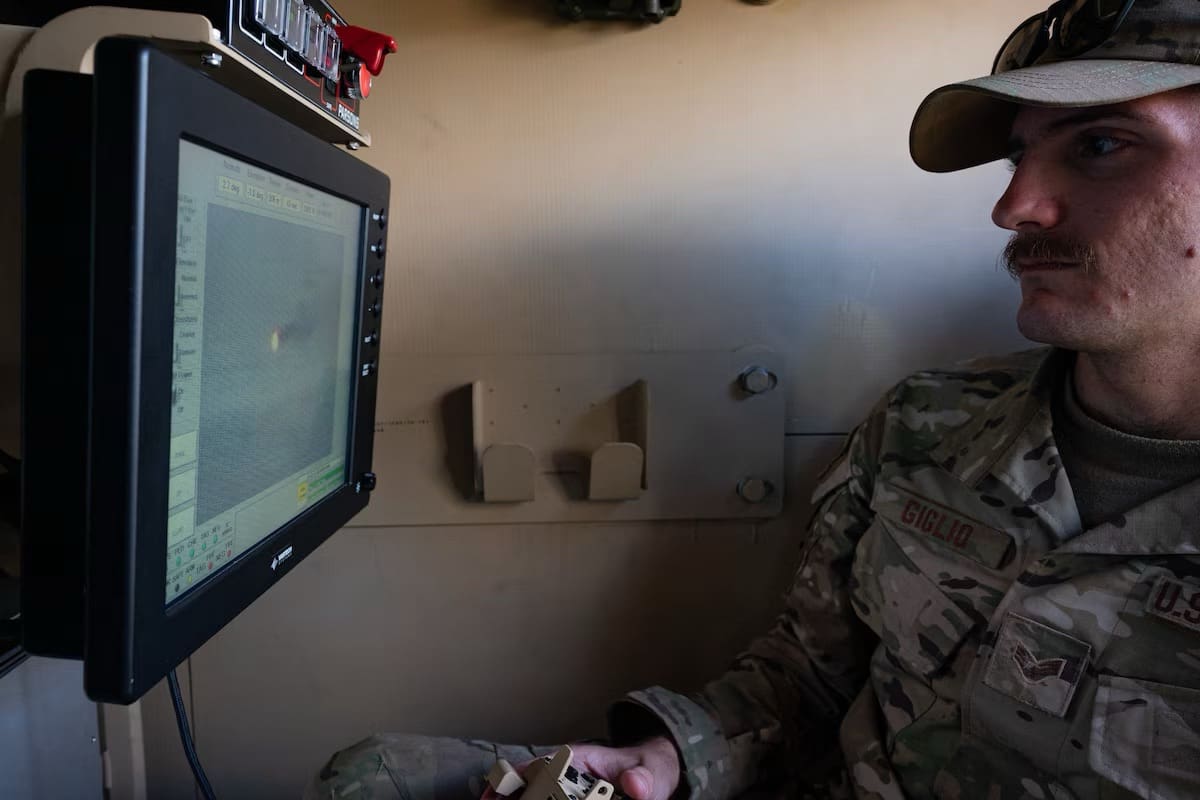
“The role of RADBO is to rapidly neutralize any unexploded ordnance after an airfield attack so the airfield is safe for civil engineering to repair runway damage, allowing the air mission to continue and get the aircraft back in the fight,” said Miranda.
The key features of the RADBO allow for EOD operators to neutralize unexploded ordnances from the safety of the armored vehicle.
“The host chassis is a MRAP CAT 1A1 Cougar in which the Zeus III Laser System is integrated on,” said Miranda. “The Zeus III Laser System is a 3KW fiber optic laser that can fire continuously, provided there is diesel in the tanks for the Cougar to produce power.”
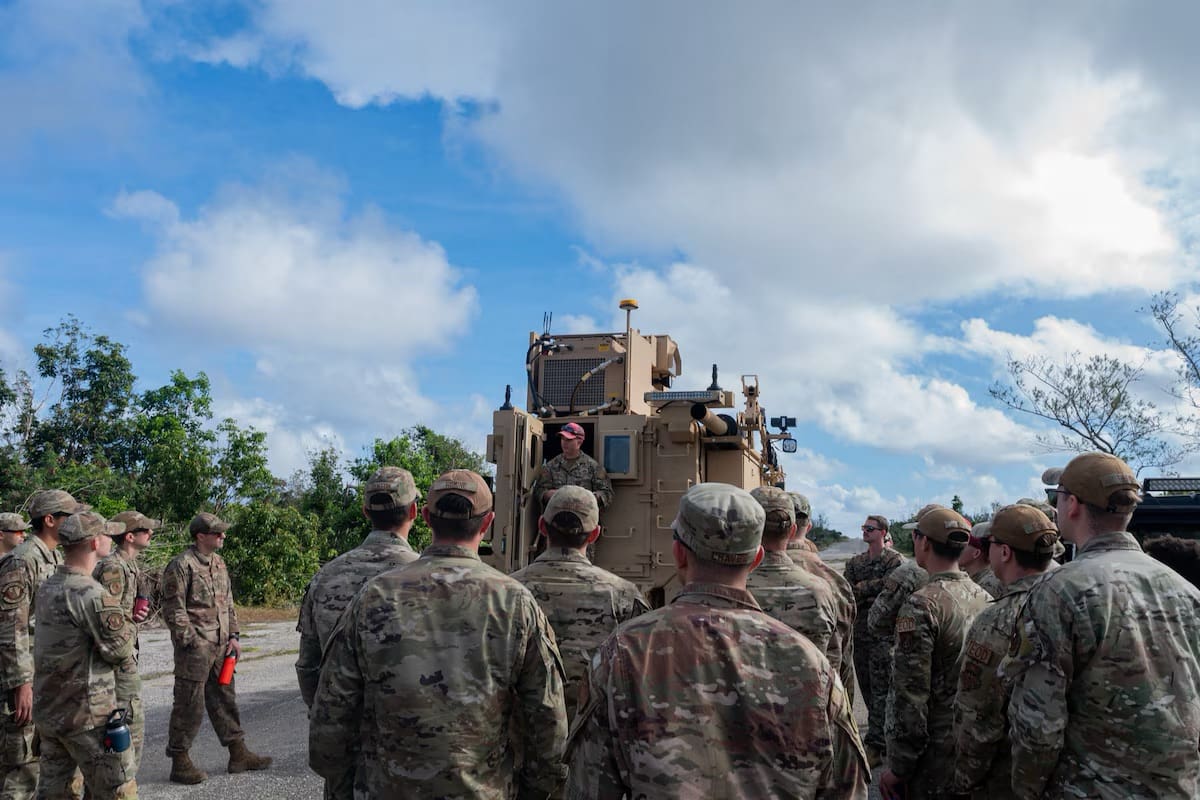
The Zeus III Laser System is effective at ranges from 50-300 meters. The requirement for a RADBO was identified in 2012 by Gen. Goldfein, then Combined Forces Air Component Commander.
“Gen. Goldfein signed an urgent operational need to rapidly neutralize multiple UXOs, repair the damaged runway, and return the airfield to service quickly,” explained Miranda. “Directed energy was somewhat of a new technology for the Air Force, so it has taken a very long time to get to where we are now.”
Currently the program office has fielded 13 RADBOs. Two prototypes are being upgraded to a production configuration, for a fleet of 15.
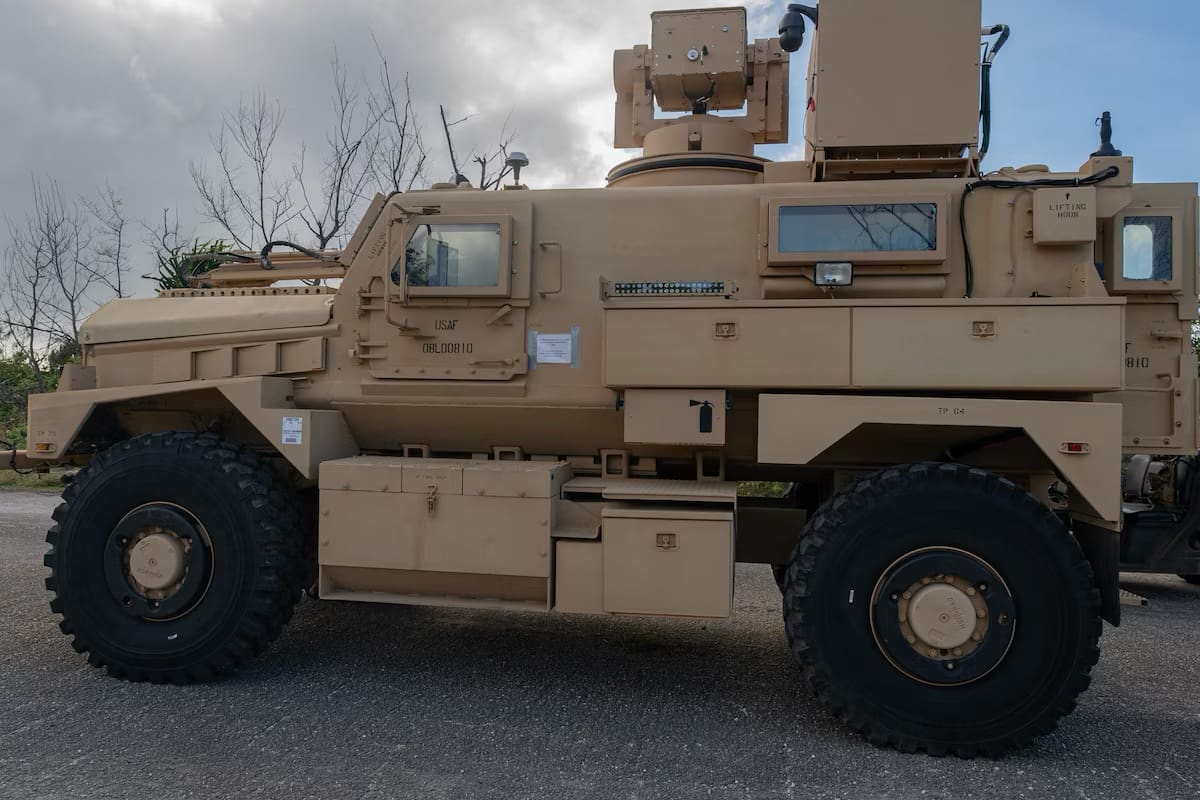
“The program office is also working on a contract modification to produce 14 additional RADBOs,” said Miranda. “Moreover, there is a lot of interest from our global allies in the RADBO system, so the program office foresees different variants of RADBO around the world in the next 10 years.”
Story by SSgt Mikaley Kline, Air Force Life Cycle Management Center Public Affairs
Photos by SrA Jasmine M. Barnes

